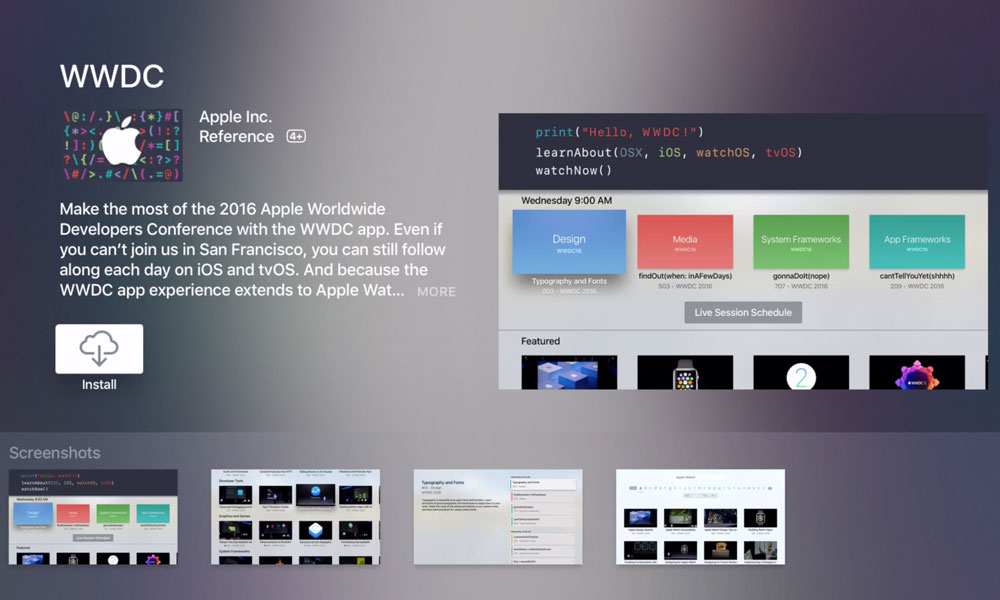
Thursday Buzz: How Apple Does Event Apps
Apple's app strategy for the company's annual WWDC conference is totally on point, thanks, at least partly, to third-party developers. Also: Why your Twitter account may need a password update.
When you have a lot of technical information to share with your attendees, what’s the best way to approach it?
Apple, mimicking its famous slogan, has a pretty obvious solution: There’s an app for that. Heck, if we’re being honest here, there’s a whole ecosystem.
Ahead of its Worldwide Developers Conference (WWDC), which starts Monday, Apple just updated its multiplatform app for the event, and unlike most organizations, it has a version specifically set aside for the Apple TV. What’s so cool about that? Simple: It’ll allow developers stuck at home to livestream individual sessions through their TV screens. WWDC, of course, is about a lot more than its storied keynotes, where new products, such as MacBooks, get released.
Equally intriguing is the fact that a third-party developer created an unofficial app of its own for WWDC, this one for Mac OS X. The app integrates with ASCIIwwdc, which allows full-text searches through session transcripts for every year of WWDC since 2010.
Considering that Apple invented the iPhone and the Mac, it makes sense that the company is at the forefront with its event app. The question, of course, is this: What can your association borrow from the company’s approach?
Change Your Twitter Password
Passwords for 32M Twitter accounts may have been hacked and leaked https://t.co/AO6PIWUZac
— Hacker News Bot (@newsycombinator) June 9, 2016
To the 32 million people who apparently just had their Twitter passwords hacked: We’re sorry to hear that.
According to TechCrunch, the news came out after the search engine LeakedSource revealed that it had been given access to a data set with a large number of users—in all, 32,888,300 email addresses, usernames, and passwords. It’s one of many recent security leaks reported by LeakedSource in recent weeks, with leaks involving Tumblr, MySpace, and LinkedIn among those receiving attention.
For what it’s worth, Twitter says that its machines haven’t been affected; instead, it’s likely that passwords were stolen from elsewhere, probably through malware. Nonetheless, the saga provides an important lesson: You probably shouldn’t share your passwords between different accounts.
Curious if your account has been affected? To find out, visit the LeakedSource website, which offers a tool for that purpose.
Other Links of Note
Speaking of passwords, a new service to watch is Copper, which allows developers to create a password-free login mechanism for their apps.
A matter of resolution: If your emails are looking kind of blurry on high-resolution screens, you might want to follow these tips from Litmus to keep your images crisp.
Make it easier for your attendees to dig into the archive for your prior events—use “session bookmarking” to point out the can’t-miss topics, Erin Pavane suggests on the Abila blog.
A sample of the Apple TV version of the WWDC app. (Apple TV screenshot)






Comments